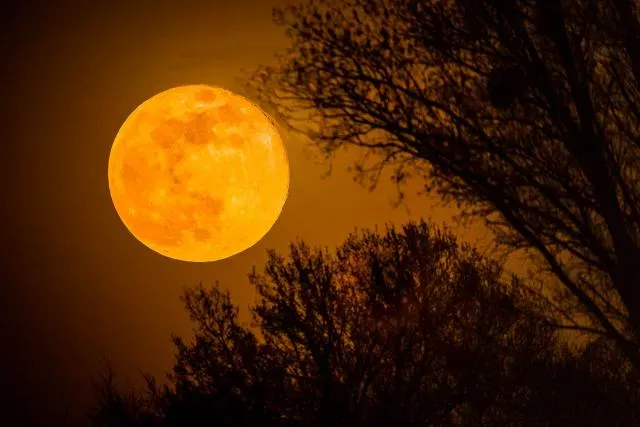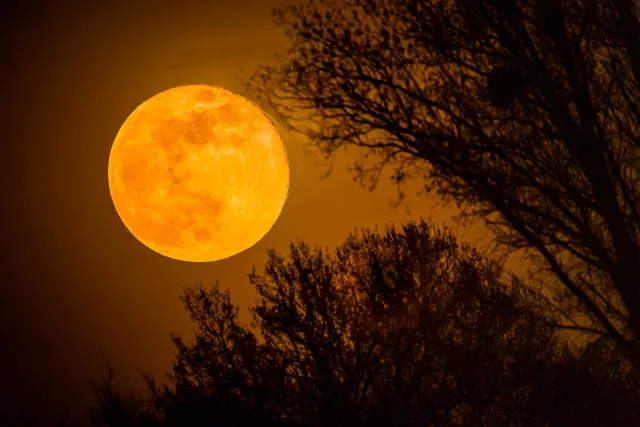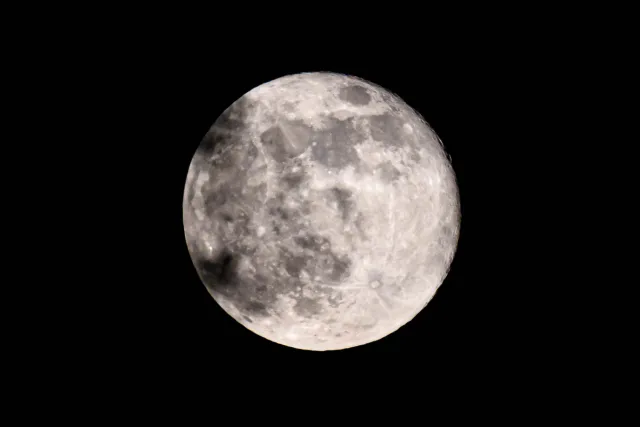Even if the color of this super moon on April 8, 2020 at 9:20 p.m. seems rather orange, it is still called the Pink Moon. This label obviously has nothing to do with its color. In fact, the term originated from the rituals of the Native Americans who saw the full moon in April in connection with the pink blooming of the flame flowers (phlox) from the pearweed family (Polemoniaceae). Thus the super moon became the messenger of the approaching spring.
A few facts about the super moon
Although the term super moon is not based on a scientific term, it has become natural to describe a view of the moon that makes it appear particularly large. The moon orbits the earth on an (approximately) slightly elliptical orbit within 27 days, 7 hours and 43 minutes. It comes closest to our planet in the so-called perigee, while in apogee it is the greatest distance from earth.
In numbers: peri and apogee of the lunar orbit differ by over 13 percent. The major semi-axis of the railway measures 384,405 km and the distance between the moon and the earth varies between 356,410 and 406,740 km. If the moon approaches the earth in its full moon phase to less than 367,600 kilometers, one speaks of a super moon.
The current super moon in April briefly came close to 356,910 km and became the "largest" super moon in 2020. The series of photos was taken between Röttgen and Lichtenberg in Hennef. High dynamic range recordings were made to show the foreground as well. The aircraft in Figure 6 could have gone a little lower.
The super moon in April 2020
Continent or ocean
Country
Region
Picture 1: The super moon in April 2020
Picture 2: The super moon in April 2020
Picture 3: The super moon in April 2020
Picture 4: The super moon in April 2020
Picture 5: The super moon in April 2020
Picture 6: The "pink" super moon with plane
Picture 7: The "pink" super moon is already in the clouds
Picture 8: The "pink" super moon at 11:00 p.m. in the clouds











